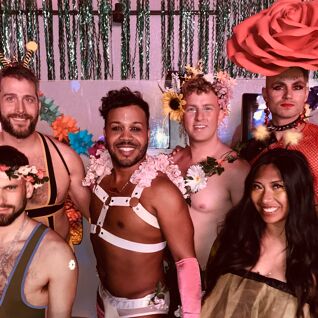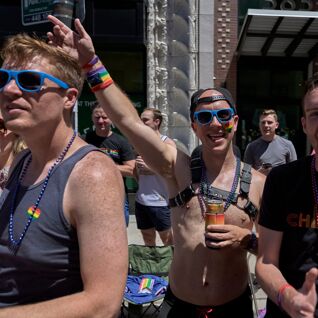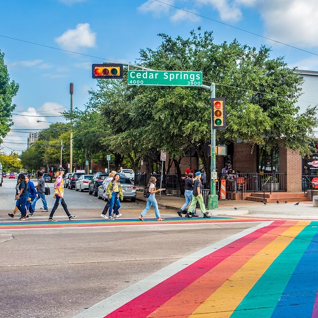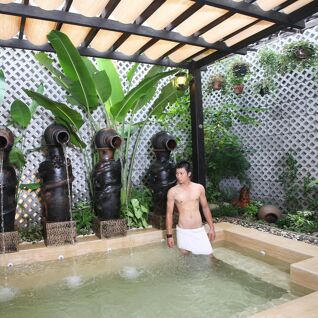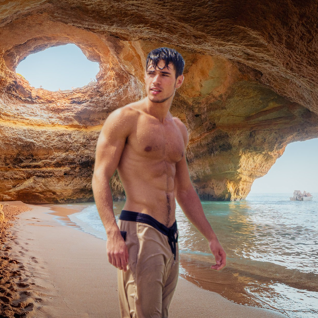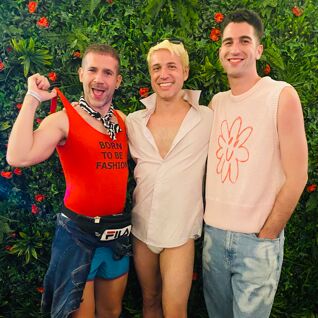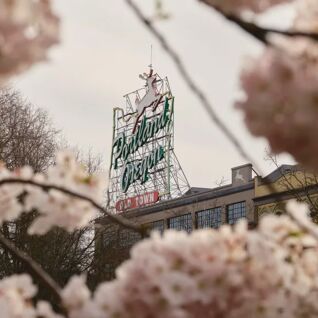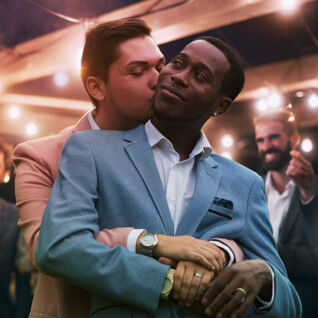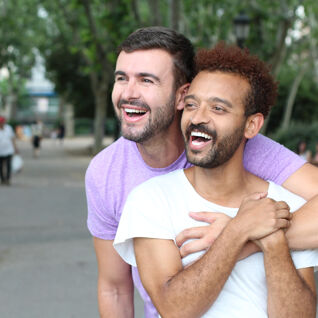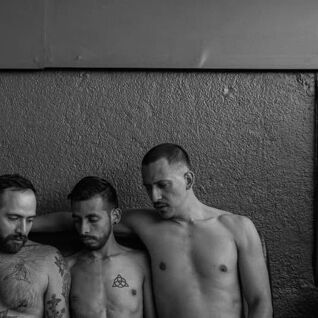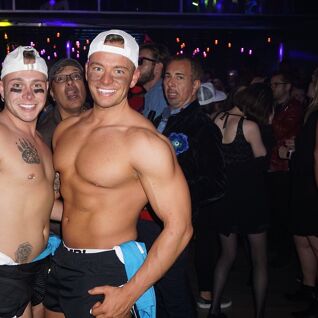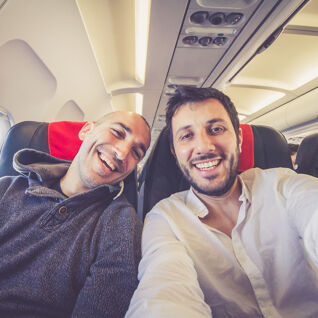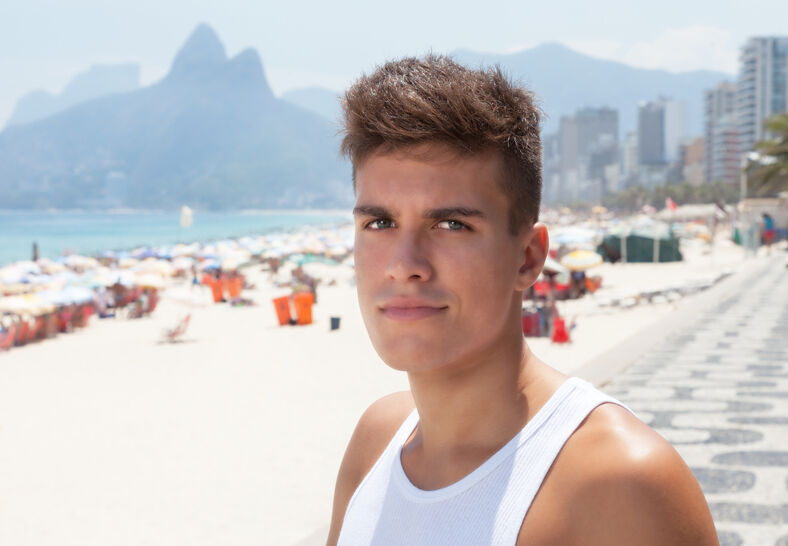
There’s a war happening in Brazil.
It’s happening somewhere between the pitanga trees and banana trees, under the cool shade of the Brazilian pines. It’s happening somewhere on the country’s beaches, between the constellations of bright, slanted umbrellas and golden, tanning bodies. It’s happening under the shadow of Christ the Redeemer, on the colorful streets of Salvador, along the thin shores of Lagoa da Conceição in Florianópolis. It’s happening everywhere and nowhere and nearly impossible to perceive. It’s a culture war – and it’s threatening to make Americans better people.
Brazil, and especially Rio de Janeiro, has long been a famed vacation spot for Americans. The country’s beautiful scenery, both natural and human, transmits an annual siren song around the world, beckoning tourists to its sunny, hypnotic fantasia. The COVID-19 pandemic, however, triggered a cascade of events that changed the face of Brazilian tourism. American office workers who were once tied to desks were now working remotely, unrestrained by morning commutes or even regular work schedules. Suddenly, these American tourists, who would have otherwise come to Brazil for only a few days, were now staying weeks, even months. They were staying long enough to savor the piquant aromas of the passion fruit vines and the trembling sighs of the bamboo forests. They were also traveling further than Rio.
However, as more and more “location-independent” digital nomads have descended upon Brazil, they’ve come to find that the land of palm trees offers more than just hot bodies and açai bowls. Meanwhile, on the flip side, the Brazilians who’ve dated them have come to find that Americans are more than just Friends, Marvel movies, and Beyoncé. Joyful discoveries and sober realizations remain the name of the day – and underneath it all, a nagging, throbbing reality threatens to upend the balance.
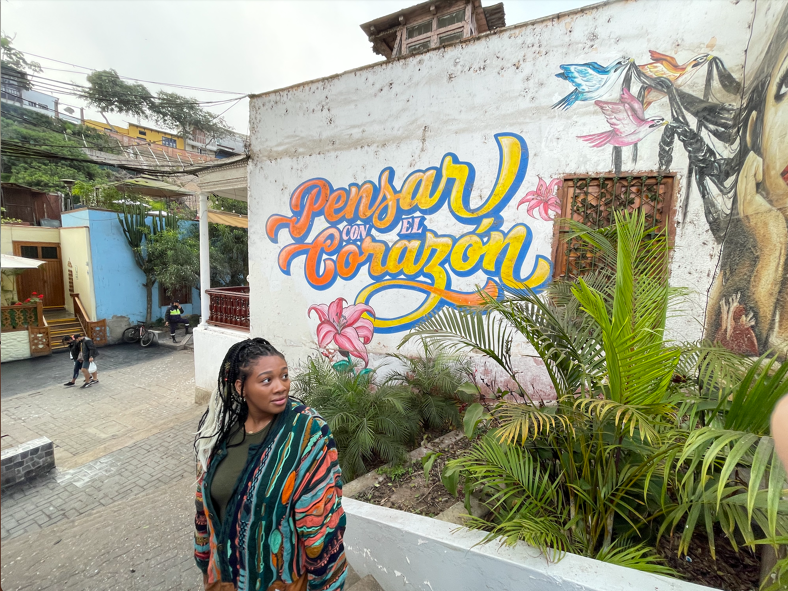
When Deana Hughes, a 28-year-old Austin native, went on her first date with a woman in Brazil, she noticed one particular difference between Brazilians and Americans that pleasantly surprised her.
“Brazilians are straightforward and don’t beat around the bush,” she says. “If they’re interested in dating and getting to know you, you’ll know, versus if they just want to hook up.”
This openness has proved refreshing to American nomads who are more accustomed to approaching romance with coyness and reserve. It can also make Brazilians seem, to Americans, more emotionally transparent.
“Brazilian gays … are much more passionate and effusive than American gays,” says Manu Delgado-Medrano, 38, a Mexican-American who recently traveled through Florianópolis in southeast Brazil. “They seem to be much more in touch with their emotions and seem to be much more willing to share them.”
But that isn’t to say that dating in Brazil is all fun and games for Americans.
While Brazilians may be laid-back overall compared to Americans, Delgado-Medrano makes sure to warn, “This chillness comes at a cost. I think Brazilians don’t take dating too seriously, which is refreshing unless you really fall for someone or are looking for something super-enduring. Beyond that, I think the most difficult part [about dating Brazilians] is that Brazilians seem to be very averse to conflict.”
As any Brazilian will tell you, it’s bad form to tell someone “no” in Brazil or to hurt someone’s feelings – even in the context of dating. So, if you’re a Brazilian who loses interest in someone, you don’t ghost them; after all, that would leave the person with a sour taste in their mouth. Instead, you give that person an increasingly elaborate – yet apologetic and effusively friendly – series of excuses as to why you can’t hang out again. And you continue to do that until that person realizes they’ll never see you again.
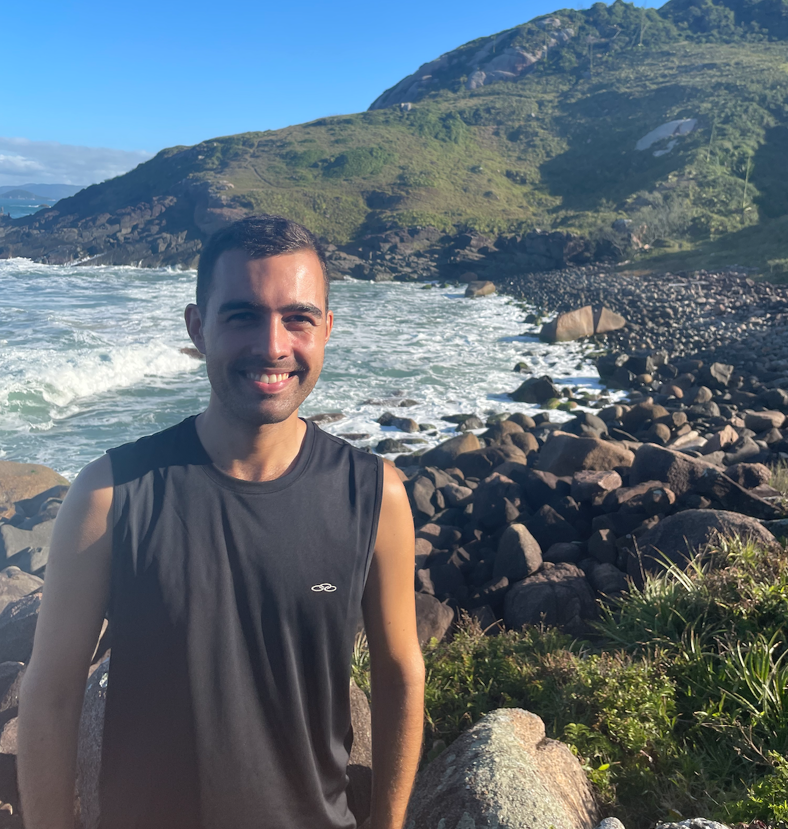
Anderson Zanatta, a 26-year-old native of the southern city of Alvorada, will be the first to admit that Brazilians’ relaxed attitudes might complicate things for Americans looking for romance. “I believe that our lack of formality and punctuality are quite irritating for foreigners,” he concedes.
Still, that inherent conflict can open the doors to broad, illuminating conversations about the differences – as well as the similarities – between Americans and Brazilians. In fact, many Brazilians and Americans – and queer Brazilians and Americans in particular – have found, through dating each other, that they share more than sexual orientation.
“I believe that the representations of gay men in American pop culture almost entirely mirror the profiles of Brazilian gay men,” says Zanatta. But he also believes that the reverse should be true. “I think that our Brazilian pop culture can be a rich source for the American queer community in many aspects, in helping them better understand racial and social issues.”
Zanatta’s beliefs belie the common notion that Brazilians revere and even mythologize America, seeing it solely as a land of opportunity. In fact, many Brazilians interviewed for this article will agree with Zanatta that the US, while materially rich in many ways, is not perfect. Some might even venture that there’s a quiet discord hidden just beneath the surface of every Brazilian-American interaction. While American nomads rightly compliment Brazilians’ laid-back attitudes towards sex and love, they still miss certain aspects of Brazilian culture that perhaps Brazilians – famously concerned with their appearances – don’t share right away. Exhibit A: Gay life.
“In the cities in Brazil where I have spent most of my time, being gay doesn’t seem to be such a big deal,” claims Manu Delgado-Medrano. “Sexuality overall is not as big a deal here in Brazil as it is in the U.S.” He also finds, in his interactions, that Brazilians seem to be less “stereotypically catty” than American queer men. He credits this to his perception that Brazilians are less concerned with each other’s sexuality.
And Delgado-Medrano is not alone: Another American, after a visit to the Posto 9 section of Ipanema Beach, claimed, “It seems like it’s a lot easier to be gay here in Brazil than in America.”
But Brazilians tell a different story.
“In Brazil, gay relationships are becoming more and more common,” says Maycon Resende, 21, “but it’s still a taboo to walk together on the streets and kiss in public. This is worse in cities in the interior, or in cities with more sexist cultures.” Incidentally, Resende hails from a city – Resende Costa – which is nestled in the country’s interior.
Anderson Zanatta adds, “The very strong religious morality in Brazilian society … is often the basis for many cases of violence against LGBTQ people in my country. I think that it is only recently that the LGBTQ identity has been truly considered in the public policies of the state. This has seen a huge challenge in the face of resistance from the most conservative and religious sectors in Brazil.”
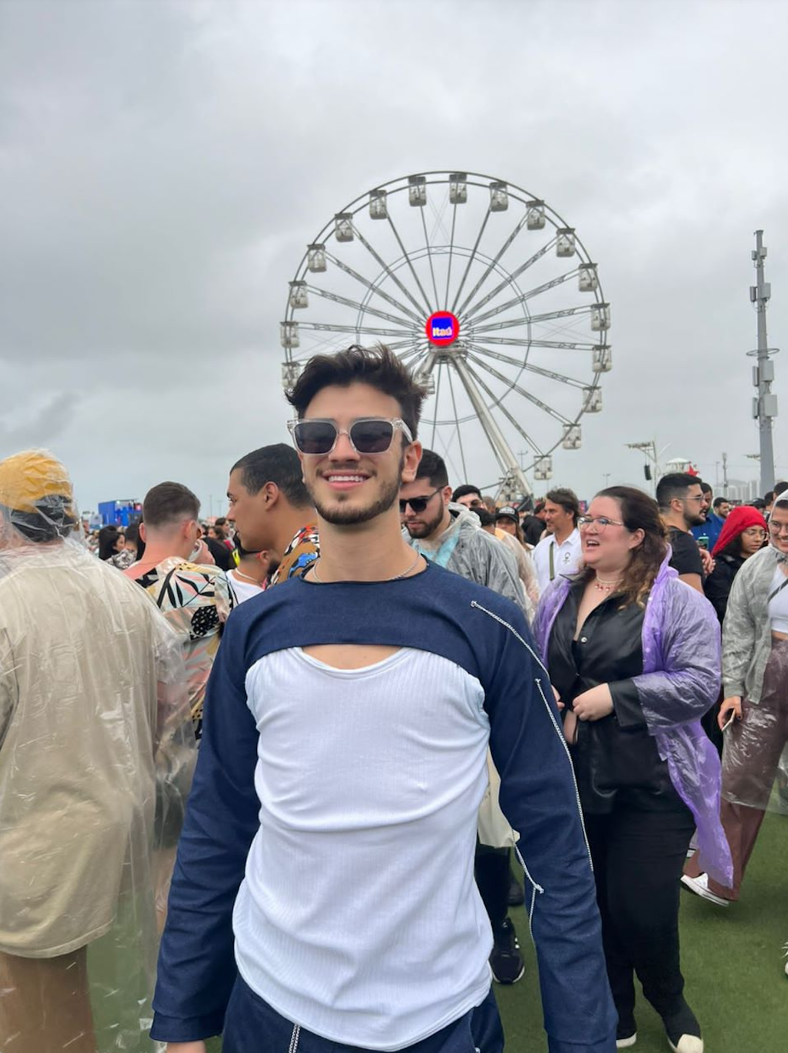
Moreover, both men attest that they face certain fears when dating other queer people. Zanatta describes a “slight fear of encountering situations of reprisal and violence when showing affection in public,” and Resende, who only recently came out to his mother and sisters, admits to “traumas and pressures,” such as the concern “that people will belittle who I am or think something [wrong] when I say who I am.”
Yet another Brazilian, a 27-year-old who hails from the northern city of Manaus and who desires to remain anonymous, paints a less-than-glowing portrait of Brazilian gay men, claiming they can be “cliquey,” “judgmental,” and – yes – “stereotypically catty.”
And while many Brazilians believe that conditions for queer people will improve under their new president-elect, Luiz Inácio Lula da Silva, they still acknowledge that their country has a long way to go. For example, while activists are happy that Brazilians living with HIV will now have more access to treatment, they worry that President Jair Bolsonaro’s legacy will plague the country for years to come.
“I believe that a lot will not change because Bolsonaro’s supporters will continue to support him – as is already happening,” says Iayla Faro of Resende Costa. “A president who publicly disseminates hate by being homophobic opens a door for people who are prejudiced to attack others. However, with a president who will publicly have more empathy … He can influence them to have more respect.”
Perhaps, in the end, it’s not surprising that there’s a discrepancy between how foreigners see queer Brazilians and how queer Brazilians see themselves. After all, as Americans have found time and time again, Brazilians are a conflict-averse people – and it stands to reason that they’re not going to come out of the gates swinging. Just like anyone on a first date, they’re going to reserve their negative self-talk for a later occasion. But on the other hand, Brazilians are both patient enough and generous enough with their time that they’ll embrace any American willing to go on this journey with them.
“Dating and marrying a Brazilian has improved my life in more ways than one,” says one 25-year-old Baltimore native who moved to São Paulo in 2020. “I’ve become better at slowing down, taking the good with the bad, and finding the beauty in every interaction.”
Adds Delgado-Medrano: “Dating Brazilians is very exciting and rewarding, and helps to remind us Americans that life is too precious to be wasted on petty drama. Be open to whatever comes at you, enjoy it and live it fully, and … If [they] stick around, then consider that the cherry on top.”
As the mélange of foreigners in Brazil continues to grow, more and more Americans might soon come to the same realization as these two. And considering America’s ongoing transformation into a late-stage capitalist melee of burnout, exasperation, and economic instability, that might not be such a bad thing.
May the war never end.
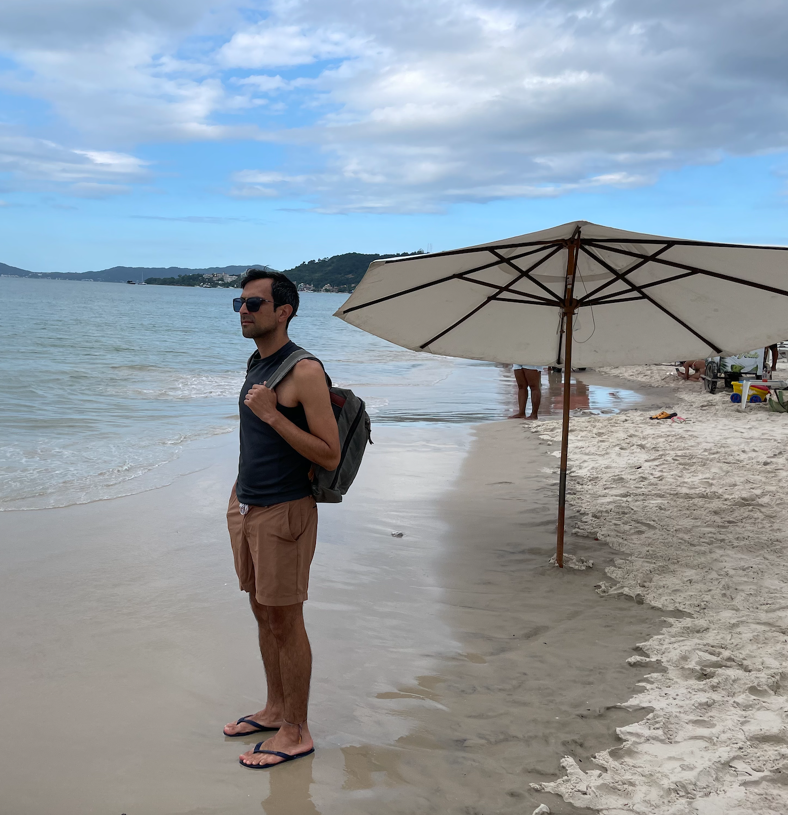
RELATED: ‘Being gay is being free’ – Buenos Aires marchers share what Pride means to them






